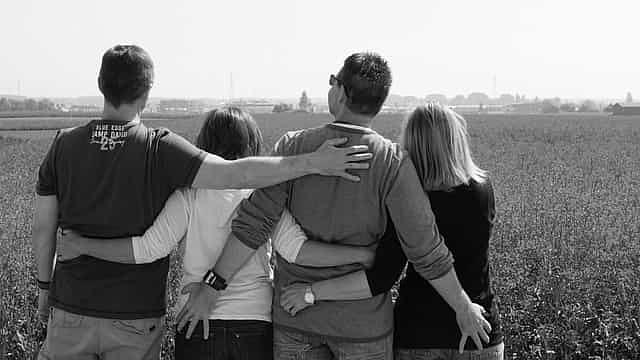Breaking Down Stigma: Supporting Those Affected by Drug Overdoses and Substance Abuse
Mariella Arceo
Sep 04, 2023

The consequences of stigma can be devastating. Stigmatized individuals are less likely to seek medical help, engage in treatment programs, or reach out for support from loved ones. The fear of judgment can prevent them from discussing their struggles openly, leading to secrecy and exacerbating their challenges.
The weight of stigma also amplifies mental health issues, making recovery an even more daunting journey.
The Weight of Stigma on Drug Overdose and Substance Use Disorders

The consequences of stigma are dire and far-reaching, hindering recovery and exacerbating the challenges individuals face.
- Barriers to Treatment: Stigmatization often discourages individuals from seeking professional treatment due to fear of judgment and discrimination. This delay in seeking help can lead to further health complications and overdose deaths.
- Isolation and Loneliness: Stigma isolates individuals, making them feel alone and detached from their support networks. This isolation can worsen mental health, increase substance use, and lead to further overdose risks.
- Lack of Support: The stigma associated with substance abuse and overdoses can prevent friends, family, and communities from providing the support that is essential for recovery. The reluctance to openly discuss these topics further perpetuates the problem.
Creating a Supportive Environment

- Education and Awareness: Providing accurate information about substance abuse, drug misuse, addiction, and overdoses is the first step toward dispelling myths and misconceptions. Awareness campaigns can challenge negative stereotypes and promote understanding.
- Language Matters: Using respectful and non-stigmatizing language when discussing substance use and overdose can make a significant difference. Language that avoids blame and judgment creates a safer space for open conversations.
- Empathy and Compassion: Developing empathy involves understanding the challenges individuals face and recognizing that drug abuse is often a manifestation of deeper struggles. Offering kindness and support can make a world of difference.
- Support Groups and Community Networks: Creating safe spaces for individuals to share their stories, exchange experiences, and find camaraderie fosters a sense of belonging and connection. Peer support can break the isolation that stigma imposes.
- Promoting Treatment Access: Ensuring accessible and affordable treatment options for substance abuse is crucial to the treatment process. When individuals know that help is available without fear of judgment, they are more likely to seek assistance.
- Storytelling: Sharing personal stories of recovery, survival, and support can humanize the issue and show that recovery is possible. Stories help break down barriers and inspire others to seek treatment.

- On this International Overdose Awareness Day, let's commit to dismantling the stigma surrounding drug overdoses and substance abuse. By fostering understanding, compassion, and empathy, we can create a space where individuals are supported in their journey towards recovery.
- Remember, every act of kindness, every non-judgmental conversation, and every effort to change attitudes contributes to a world where stigma no longer stands in the way of healing and hope. 🤝